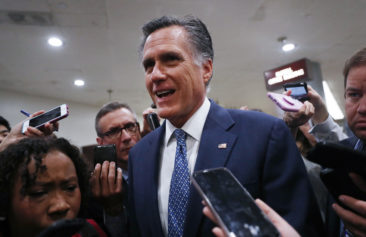Ed Conard
Bain Capital has been prominent in the economic and political headlines since Mitt Romney made began his bid for the GOP Presidential nomination, but fellow Bain alumnus Edward Conard has made a splash of his own with his new book, Unintended Consequences: Why Everything You’ve Been Told About the Economy is Wrong. In the book, Conard makes the case that the staggering gap like that seen between the “one percenters” who control 21 percent of the nation’s income and everyone else is a sign of a healthy economy.
Andy Kroll of TomDispatch likened Conard’s assertion to the infamous motto of Gordon Gekko, the protagonist and capitalist role model in Oliver Stone’s movie Wall Street, who simply said “Greed is Good.” Clearly there would be little support for Conard’s argument in a survey of the rest of America’s 99 percent, where the more obvious effects of inequality play out daily for those who live paycheck to paycheck. So when Conard suggests that our current society will only improve if the amount of wealth among the 1 percent doubles, it sounds nothing short of appalling.
Conard’s case is based upon the idea that wealthy investors are more beneficial to society than common people or consumers. Those investors are the ones who can create solutions to societal issues by funding new and perfected goods and services. It is because of these investments that the general quality of life improves, he claims. According to Conard, for every dollar an investor gets, the public earns up to $20 in value. In an interview with New York Times Magazine, Conard even went as far as to suggest that the billions of dollars legendary investor Warren Buffett had donated to charity were detrimental. “That money was for the middle class,” he claimed.
Unintended Consequences may very well be the most controversial book released this year when it reaches bookstores on Thursday. Detractors have labeled Conard as an out-of-touch millionaire living in a fantasy land,” but his claims have not been portrayed as anything other than his own genuine beliefs. “We’ll leave it to his shrink,” liberal economist Dean Baker said, “to determine whether the problem is that Conard is deluded or dishonest.”
Such an extreme view on the disparity seen between classes in America is sure to sell books, but there’s no telling whether or not Conard’s writing will become the new manifesto for high ranking investors.

